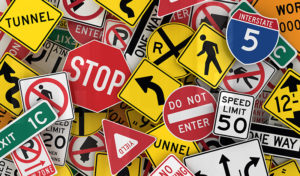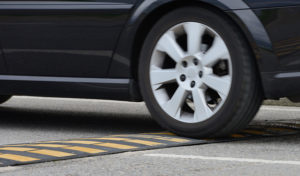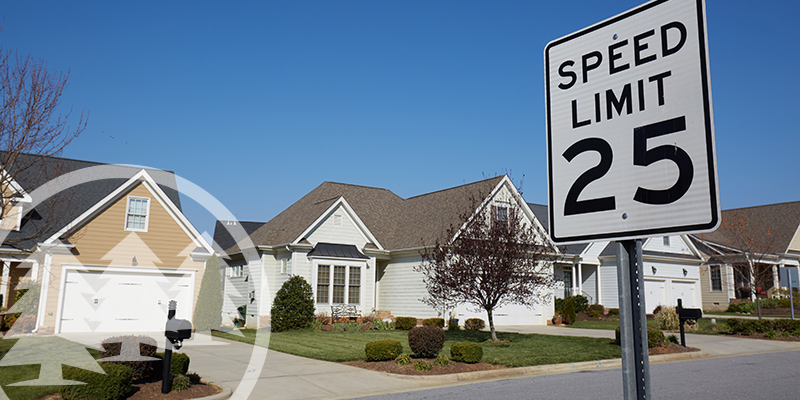The South Carolina Uniform Act Regulating Traffic on Highways sheds some light on the law’s application to private roads. But, what exactly are the provisions contained within this Act?
What Is the South Carolina Uniform Act Regulating Traffic to Private Roads?
The South Carolina Uniform Act Regulating Traffic on Highways, found under Title 56 of the South Carolina Code of Laws, is a law that governs vehicles and drivers on South Carolina roads. This Act applies to all types of vehicles, with sections dedicated to motor vehicles, motorcycles, bicycles, mopeds, buses, trucks, and even farm tractors. It also discusses right-of-ways, powers of local authorities, accidents and reports, and traffic signs.
A common question many South Carolinians have, though, has to do with private roads. More specifically, does this Act apply to roads, streets, and sidewalks found in gated communities?
Article 45 of the South Carolina Uniform Act Regulating Traffic on Highways addresses this very concern. According to this article, the provisions of the Act will only apply to private roads if the owner of those private roads consents. Section 56-5-6310 details that the owner of the private roads, including any homeowners association, should file a written consent to adhere to the provisions of the South Carolina Uniform Act. The owner must also state that they are the owner of the private roads as detailed in the attached plat.
If the owner wishes to terminate their consent, they can do so by filing a notice of termination. They should file the notice with the clerk of court or register of deeds and the sheriff as detailed under Section 56-5-6310. The termination of consent takes effect 30 days from the date the owner files it with the clerk of court or register of deeds.
Traffic Control Signs and Speed Limits on Private Roads
 Homeowners associations are no strangers to rules. In fact, it is part of an HOA’s job to enact and enforce rules designed to maintain the condition and appeal of the community. Normally, these rules have to do with noise, pets, and the use of members’ homes.
Homeowners associations are no strangers to rules. In fact, it is part of an HOA’s job to enact and enforce rules designed to maintain the condition and appeal of the community. Normally, these rules have to do with noise, pets, and the use of members’ homes.
These rules also outline the obligation of homeowners, which can include paying regular dues and maintaining their yards. Some associations, though, also enact parking and traffic rules within the community. These rules can extend to imposing speed limits and setting up traffic control signs.
Under the South Carolina Uniform Act Regulating Traffic, owners must submit proposed speed limits and proposed locations for traffic control signs to the sheriff of the county where the private roads are located. The owner, which is the homeowners association, must receive written approval from the county sheriff before enacting speed limits and posting traffic control signs. This approval will be filed with the clerk of court or register of deeds as well. The traffic control signs should look identical or similar to the ones used on public roads.
It is always best to seek assistance from your local law enforcement agency to regulate traffic on private roads. Homeowners associations, after all, don’t possess the power to make an arrest or issue a warrant. While some associations may try to issue speeding tickets to drivers, these tickets are most likely not recognized by state or local laws.
How to Address Speeding in Your HOA Community
Speeding vehicles have long been a problem for many homeowners associations in South Carolina. While the SC Uniform Act Regulating Traffic to Private Roads somewhat tackles the issue, there are other things an HOA board can do to actively reduce speeding in the community.
1. Communicate and Educate
Communication and education go hand-in-hand when regulating traffic on your private roads. Some drivers mistakenly believe that traffic rules don’t exist just because they are in a gated community. But, traffic accidents can happen anywhere — even inside private subdivisions.
To prevent accidents and promote responsible driving, take time to educate the homeowners in your HOA. Remind them constantly of the traffic rules in your community and let them know that there are many dangers to speeding. Parents feel more at ease letting their kids play outside in a gated community. But, children don’t always know not to go out into the street. It only takes a single speeding driver to create a tragic accident.
When communicating with residents, make sure to use all the available channels. Send reminders through emails and text messages. If you have a regular newsletter, include an article on speeding and its dangers every once in a while. Post your traffic rules on the homepage of your community website. Do everything in your power to facilitate a safer neighborhood for everyone.
2. Install Speed Bumps
 Speed bumps, rumble strips, and speed cushions can do wonders for regulating traffic in your community. In fact, many homeowners associations use this as the first step in discouraging speeding in their neighborhoods. Of course, this solution will cost the association money, and the exact price tag attached to such a project can vary. If your budget does not allow it, perhaps go for a more affordable solution such as painting a strip on the road to mimic a speed bump. This can have the desired effect of calming traffic without having to actually install a speed bump.
Speed bumps, rumble strips, and speed cushions can do wonders for regulating traffic in your community. In fact, many homeowners associations use this as the first step in discouraging speeding in their neighborhoods. Of course, this solution will cost the association money, and the exact price tag attached to such a project can vary. If your budget does not allow it, perhaps go for a more affordable solution such as painting a strip on the road to mimic a speed bump. This can have the desired effect of calming traffic without having to actually install a speed bump.
Before installing any speed bumps or rumble strips, though, make sure to consult your local municipal department first. There may be some building codes and requirements that your association will need to follow.
3. Install Security Cameras
While security cameras don’t directly reduce speeding, they can capture any speeding vehicles or traffic accidents after the fact. The recorded footage will surely come in handy when determining who’s at fault and how to settle the matter. Just remember not to infringe on any privacy laws when installing security cameras in your community. Generally speaking, they should only be placed in common areas and never pointed at any point where residents have a reasonable expectation of privacy. That means no pointing at windows, doors, and front yards.
The Bottom Line
The South Carolina Uniform Act Regulating Traffic to Private Roads certainly comes in handy for homeowners associations anywhere. But, it only applies to associations that elect to be governed by the Act by providing written consent. On the subject of penalizing speeding drivers on private roads, it’s always best to ask for help from local law enforcement.
Are you having trouble managing your homeowners association? Make things easier with the help of a trusted management company such as Cedar Management Group. Get in touch with us today at (877) 252-3327 or contact us online to request a free proposal.
RELATED ARTICLES:
- HOA Parking Issues: How To Deal With This Problem
- North Carolina Solar Installations In HOAs: Can It Be Restricted?
- What’s The Real Deal About Police Vehicles In An HOA Community?






